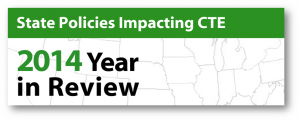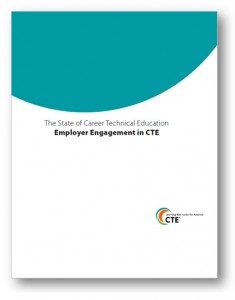This blog series provides readers with insight on the valuable content that is being shared at the NASDCTEc Spring Meeting. Guest bloggers are partner organizations, supporters and other experts that will be present at the national gathering in Washington, DC in April.
For a very long time, American education has offered an either/or choice for students: Either follow a career track OR enter the (default) baccalaureate track which, while well-intended, is failing LARGE numbers of students. Today’s Pathways model offers a third choice, combining the best of both. And CTE Leaders have an incredible opportunity today to provide leadership in defining and driving the 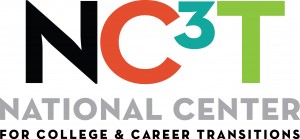 Pathways agenda.
Pathways agenda.
At NC3T (National Center for College and Career Transitions), we promote the notion that school districts thrive when they work with employers and postsecondary partners to create a “pathways for all” approach. The Pathways for All approach is more flexible, individualized, and based on the real needs and opportunities in today’s workforce, where skills and knowledge, not years of schooling, leads to meaningful work and family-sustaining earnings. To accomplish this, each district develops a broad array of pathways, some which are more career- or occupation-specific, and some which are more thematic, like social justice, visual arts, and global leadership. Ideally, each pathway is designed to lead to several post-secondary options, such as programs leading to certificate programs, associate degrees, and baccalaureate degrees.
To explore this comprehensive Pathways-for-All system, CTE local administrators and state leaders are well positioned (probably best-positioned) to help drive the conversation. You can drive the Pathways conversation from several entry points, including   Readiness, Teaching and Learning, Effective Employer Engagement, Postsecondary Connections, and Career Development.
Help Define Student Readiness For Work and Life Success
CTE leaders can continue to advance the idea that readiness requires more than academic skills. Readiness for all students includes Learning Skills, Thinking Skills, Communication Skills, Executive Skills, Persistence and Work Ethic, Interpersonal Competencies, Career Search and Career Management, Civic Awareness and Commitment.
We should stand against definitions that define Career Readiness separately from Postsecondary Readiness. Yes, there are specific technical skills that are a gateway for certain careers. But apart from that narrow band of skills, for the most part, the skills and knowledge and attitudes for work success and postsecondary success are the same, but they’re just applied differently based on the learner’s or worker’s context. A student is really just a worker whose immediate job is learning.
Create Dynamic Teaching and Learning
CTE leaders can work to ensure that CTE teachers learn and apply the most promising and effective teaching practices, utilizing active learning strategies like project-based, problem-based, and inquiry-based learning. Although CTE content is based on industry-based skills, CTE instruction can easily fall prey to the same trap as a core academic course, in which a teacher “stands and delivers,” conveying information about a career field or the processes of that field, without challenging the students to engage in deeper learning, problem solving, and creativity. Some CTE teachers deep down may believe that their students can’t learn more deeply, and that simple regurgitation of information and imitation of skills are the best they will be able to accomplish. This is where strong professional development, and challenging teacher perceptions through collaborative leadership, are essential.
Model effective employer involvement
In a strong pathways system, employers and volunteers are actively involved in classrooms, interacting regularly with students, and helping students get into the workplace. CTE programs can always get better at utilizing employers in multiple facets of their work. A good first step is to re-purpose your program Advisory Councils into “Partnership Councils” with the goal of driving deep business-industry involvement in all aspects of instruction, career mentoring, and experiential learning.
Engage leaders from postsecondary education
Each pathway program of study needs active collaboration among teachers and faculty, so that curriculum can be well-aligned and offer early college credits. CTE teachers and administrators can create the structures and processes for collaboration and recognizing student learning for college credit that others in the school system and colleges can build upon.
Inform Career Exploration
CTE leaders and staff usually have the best understanding and access for career-based information. They can help inform a comprehensive K-12 career exploration and career development system.
Start the Bigger Conversation
CTE leaders are particularly able, and well-positioned, to develop good working relationships with K-12 system leaders, postsecondary education, and employers. As a result, they are the ideal point people to convene these sectors and begin to explore what a Pathways System looks like. You can host a business-education summit; create a Readiness-forum among K-12, postsecondary and employers; or call partners together to discuss the merits and challenges of the Pathways-for-All approach.
Positive Momentum
If you’re in the CTE movement, you may already recognize that the wind is behind our backs in this work. Many educators, parents, and business/community leaders are troubled and looking for better answers: They realize that core standards and testing are necessary, but not sufficient, because alone they do not adequately engage enough students. They recognize that too many students are pursuing college and taking on debt without a realistic career objective. And they understand there is a broad continuum of postsecondary options for which our guidance systems and programs of study don’t match up well. The result is that only 40 percent of our young adults complete an Associate’s degree or BA program, and about half of young adults lack tangible knowledge and skills that are in-demand.
Just promoting college-going isn’t enough: We must promote discovery, exploration and postsecondary education that has purpose.
So, the wind is behind our backs, but it could change direction at any time. We need to act quickly and help build consensus about what a Pathways-for-All system can be in our communities.
Federal rules, regulations and funding are slow in coming, which is why the pioneering leadership we’re seeing at the state and local levels now is so critical. CTE isn’t the full answer, but it is a foundational part of what a pathways system will become, and CTE leaders can help leverage and engage all facets of our education system to create Pathway Systems that work.
Thank you for your indispensable leadership. We are standing with you.
Hans Meeder, President and Co-Founder
National Center for College and Career Transitions
Thanks to NC3T for being a NASDCTEc Spring meeting sponsor!






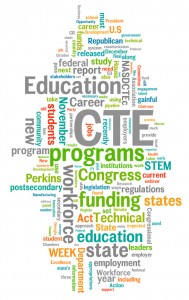


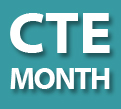 rams from around the country, major onsite and online events and more. To start of us off, below are a list of a few events.
rams from around the country, major onsite and online events and more. To start of us off, below are a list of a few events.